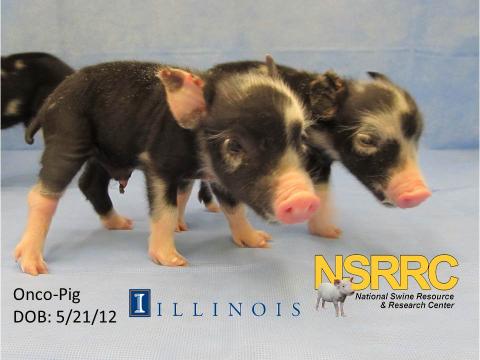
It has been two years since the National Swine Resource and Research Center (NSRRC) produced the pigs required to create our inducible transgenic porcine model for the study of human cancer. With the birth of the piglets on May 21, 2012, we became much closer to reaching our goal of generating a novel transgenic porcine model. Previous research conducted in our lab has shown that overexpression of several human oncogenes led to tumor development in pigs. Thus, we chose to generate transgenic pigs carrying two inducible mutant oncogenes, Kras and p53. Pig-specific mutation sites corresponding to those commonly found in human cancers were identified. We sequenced these 2 genes, made the mutations found in human cancer cells and put them into an inducible vector. This vector construct has been tested in pig fibroblasts by co-transfection with Cre plasmid, which deletes the polyA “STOP” sequence and allows transgene transcription. We found that expression of KrasG12D and p53R167H mutants was significantly induced upon Cre recombinase introduction. This construct was used for nuclear transfer cloning to generate inducible KrasG12D and p53R167H transgenic pigs.
